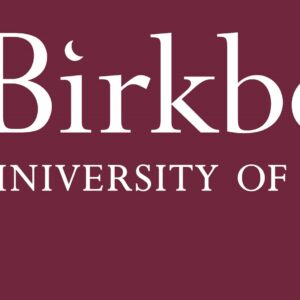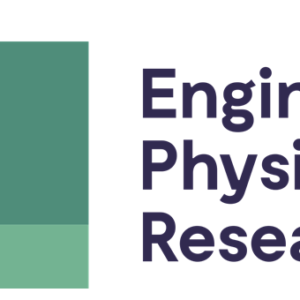RIPS Summer Internship 2025 in the USA: A Comprehensive Guide
RIPS Summer Internship 2025 in the USA. Are you a student or early career professional eager to gain hands-on experience in a research environment? If so, the RIPS Summer Internship 2025 in the USA is an incredible opportunity that could help shape your future career. The Research in Industrial Projects for Students (RIPS) program offers students from around the world the chance to work on real-world projects, all while receiving a stipend to support them financially.
This post will guide you through everything you need to know about the RIPS Summer Internship 2025, including how to apply, the program’s benefits, its duration, and what makes it an ideal opportunity for aspiring researchers.
What is the RIPS Summer Internship?
The RIPS Summer Internship is an immersive 9-week research program designed for students who are interested in gaining experience working on interdisciplinary research projects in the fields of science, technology, engineering, and mathematics (STEM). The program, which is held in the United States, focuses on real-world problem solving, allowing interns to collaborate with industry professionals and academic researchers.
The RIPS Summer Internship is fully funded, offering both financial support and the chance to work with top-tier mentors. Each year, the program attracts students from across the globe, making it a competitive and prestigious internship.
Key Details of the RIPS Summer Internship 2025
Duration of the Program:
The RIPS Summer Internship 2025 will run for 9 weeks, starting in June 2025 and concluding in August 2025. This full-time commitment allows interns to dive deep into their research projects while gaining invaluable exposure to the world of academic and industrial research.
Application Deadline:
The application deadline for the RIPS Summer Internship 2025 is typically around February or March 2025. It’s important to regularly check the official RIPS website for the precise date and to ensure your application is submitted on time.
Eligibility:
While the RIPS Summer Internship is open to students from various disciplines, it primarily targets those in STEM fields. To be eligible for the internship, applicants must meet the following criteria:
- Currently enrolled in an undergraduate or graduate program.
- A background in STEM, including but not limited to computer science, mathematics, engineering, and data science.
- Have the ability to work in teams and contribute meaningfully to real-world research projects.
You should visit the official RIPS website for the complete eligibility criteria and application instructions: RIPS Internship Official Site
Financial Benefits of the RIPS Summer Internship
One of the most attractive features of the RIPS Summer Internship is its financial support. Selected interns receive a comprehensive funding package, which includes:
$4,000 Monthly Stipend:
Interns receive a generous stipend of $4,000 per month to cover living expenses. This stipend ensures that you can focus on your research and professional development without worrying about financial constraints. It allows interns to live comfortably in the U.S. while gaining valuable experience.
Travel Expenses:
In addition to the monthly stipend, RIPS covers round-trip travel expenses to and from the United States. This is a significant benefit for international students who would otherwise face the burden of expensive airfare.
Housing:
RIPS also provides free housing to interns, ensuring that you have a safe and comfortable place to stay for the duration of the program. Housing is typically arranged near the university or research institution, making it easy for you to commute to your project location.
Networking Opportunities:
As part of the RIPS program, you will have the opportunity to network with professionals from industry-leading companies and top universities. These connections can play a critical role in advancing your career and opening doors to new opportunities in academia or industry.
How to Apply for the RIPS Summer Internship 2025
Applying for the RIPS Summer Internship 2025 is straightforward, but it requires careful preparation. Follow these steps to submit a successful application:
-
- Review Eligibility: Before starting your application, ensure that you meet the program’s eligibility criteria, which include being enrolled in an academic program and having a background in STEM.
-
-
- A completed application form, available on the official RIPS website.
- Your academic transcripts, which should highlight your coursework and achievements.
Prepare Your Application Materials: You will need to submit the following documents as part of your application: A personal statement, explaining why you want to participate in the RIPS program, what you hope to achieve, and how you would contribute to the team.
- Letters of recommendation from professors or professionals who are familiar with your academic or research abilities.
- Submit Your Application: Once your materials are ready, submit your application through the official RIPS portal. Make sure to double-check your submission to ensure that all documents are in order.
- Interview Process: If your application is shortlisted, you may be invited for an interview. This is an opportunity for the RIPS team to assess your skills, motivations, and ability to collaborate with others.
- Wait for the Results: After the interview process, successful applicants will be notified of their acceptance into the program.
Why You Should Apply for the RIPS Summer Internship 2025
Gain Real-World Experience:
The RIPS Summer Internship provides an unparalleled opportunity to apply your academic knowledge to real-world problems. Working alongside professionals, you’ll have the chance to develop your research skills, gain industry insights, and work on cutting-edge projects that can help shape your career.
Enhance Your Resume:
Completing the RIPS program is a prestigious accomplishment that will greatly enhance your resume. Being part of a globally recognized research internship will demonstrate your commitment to academic and professional excellence, setting you apart from other candidates in future job applications.
Collaboration and Networking:
You’ll work on a research team with professionals, faculty members, and other interns. This collaborative environment helps you develop teamwork and communication skills, which are critical in any career. Moreover, the networking opportunities are invaluable for anyone looking to build connections in the research or technology sectors.
Research Fields at RIPS
The RIPS Summer Internship offers students the opportunity to work on a wide range of research projects across multiple disciplines in science, technology, engineering, and mathematics (STEM). These fields align with real-world industrial challenges, providing a platform for interns to engage in cutting-edge, practical research. Below is an in-depth overview of the key research fields involved in the RIPS Summer Internship, highlighting the breadth of opportunities available.
1. Computer Science and Software Engineering
Computer Science is one of the most prominent fields in the RIPS Summer Internship, and students interested in this area can expect to work on projects that involve software development, data analytics, algorithms, and artificial intelligence. Research typically focuses on creating innovative solutions to industry-specific problems through the development of software tools or frameworks.
Potential Research Areas in Computer Science:
- Machine Learning and AI: Interns might work on projects involving deep learning, reinforcement learning, or natural language processing. These projects aim to improve systems in sectors like healthcare, autonomous driving, and finance.
- Data Science and Analytics: Students may be tasked with analyzing large datasets to derive actionable insights. This could involve developing algorithms for data mining, visualization, and predictive modeling.
- Cybersecurity: Protecting systems from cyber threats remains a top priority for businesses and governments. Interns in this field could engage in developing algorithms for data encryption, intrusion detection systems, or security protocols.
- Software Development: RIPS projects might include building software applications to meet specific needs within industries, such as creating user-friendly interfaces or improving system architectures.
Interns working in computer science can expect to engage with tools like Python, R, Java, C++, and frameworks like TensorFlow or PyTorch.
2. Mathematics and Computational Sciences
Mathematics is foundational to many of the problems addressed at RIPS, particularly in fields such as optimization, data science, and modeling complex systems. Interns focusing on mathematics will often work on projects that require high-level problem-solving skills, leveraging mathematical theories and computational tools.
Potential Research Areas in Mathematics:
-
Optimization and Operations Research:
- Computational Mathematics: This involves using mathematical models and algorithms to simulate real-world systems, often dealing with large datasets or complex problems like fluid dynamics or computational biology.
- Cryptography: Research could involve developing secure communication protocols or algorithms that safeguard sensitive information, critical in both government and private sectors. Interns will likely apply advanced mathematical techniques and tools, such as linear algebra, calculus, statistics, and specialized software like MATLAB or Wolfram Mathematica.
3. Engineering and Applied Physics
Engineering research at RIPS focuses on applying scientific principles to solve practical problems in various sectors, including electronics, renewable energy, robotics, and materials science. These projects might involve developing new technologies, improving existing systems, or designing prototypes for industrial applications.
Potential Research Areas in Engineering:
- Mechanical and Electrical Engineering: Interns could engage in developing new hardware solutions, such as more efficient engines,or focus on improving electronic devices and systems in fields like IoT or telecommunications.
- Renewable Energy and Sustainability: With the global shift towards sustainable energy, RIPS internsmay research clean technologies such as solar energy, wind power, or energy-efficient systems. Projects could involve modeling energy systems, optimizing solar panels, or investigating new materials for better energy storage.
- Robotics and Automation: Interns might work on designing or improving robotsand automation systems, often focusing on autonomous vehicles, drones, or manufacturing robots.
Engineering research is highly interdisciplinary, often involving collaboration with experts in physics, computer science, and industrial design. Interns may use tools like SolidWorks, AutoCAD, LabVIEW, or Python.
4. Biotechnology and Biomedical Engineering
Biotechnology and biomedical engineering are critical fields in advancing healthcare technologies. RIPS offers opportunities for students interested in medical research and healthcare innovation. Interns might work on projects involving bioinformatics, medical imaging, or the development of diagnostic tools.
Potential Research Areas in Biotechnology:
- Bioinformatics and Genomics: Interns could be tasked with analyzing genetic data to discover new insights into human diseases, drug efficacy, or genetic predispositions. This may involve working with high-throughput sequencing data and using bioinformatics tools like BLAST, Galaxy, or Bioconductor.
- Medical Imaging: Biomedical interns may engage in projects focused on developing and improving imaging technologies used in diagnostics, such as MRI, CT scans, or X-rays. These projects often involve signal processing and image analysis.
- Medical Devices: Research could involve developing new biomedical devices or improving existing ones. This could include wearable health monitors, implantable devices, or prosthetics.
Biomedical interns often work with a mix of computational techniques and laboratory experiments, collaborating with both engineers and medical professionals. Knowledge of platforms like MATLAB or Python is often required, as well as an understanding of biological systems.
5. Data Science and Artificial Intelligence
Data Science and AI represent two of the most rapidly growing fields within the RIPS Summer Internship. Interns interested in these areas can expect to be at the cutting edge of developing models that process large datasets, extract meaningful patterns, and apply AI techniques to real-world problems.
Potential Research Areas in Data Science and AI:
- Natural Language Processing (NLP): Interns may work on improving algorithms that enable machines to understand and generate human language, a field that powers technologies like voice assistants, chatbots, and language translation tools.
- Computer Vision:</strong> Involves the development of algorithms that allow machines to interpret and process visual information from the world, such as improving facial recognition systems or enhancing medical imaging techniques.
- Predictive Analytics: Interns may engage in projects that predict future outcomes based on historical data, such as forecasting stock market trends, consumer behavior, or disease outbreaks.
In AI research, interns will often use Python and specialized libraries like TensorFlow, Keras, or scikit-learn to build and train models. They might also use platforms like Jupyter notebooks for interactive development.
6. Environmental and Climate Sciences
RIPS also supports research in environmental and climate sciences, where interns contribute to projects that address global challenges like climate change, pollution, and resource conservation. These projects often require a combination of data analysis, environmental modeling, and policy analysis.
Potential Research Areas in Environmental Science:
-
- Climate Change Modeling: Interns might work on simulations and models that predict climate change impacts, such as rising sea levels, temperature fluctuations, or biodiversity loss. Students might work on mathematical models that optimize systems or processes in industries like logistics, telecommunications, or supply chain management.
- Pollution and Sustainability
-
Research could involve developing technologies or strategies for reducing carbon footprints, waste management, or water conservation.
- Environmental Policy: Interns may collaborate on
projects that analyze the impact of environmental policies, helping governments and organizations make data-driven decisions.
7. Social Sciences and Economics
Although RIPS primarily focuses on STEM fields, there are also opportunities for students with an interest in the social sciences or economics. Research in this area often combines quantitative methods with social theory to tackle complex issues such as inequality, economic policy, and global development.
Potential Research Areas in Social Sciences and Economics:
- Behavioral Economics: Interns might engage in projects that use psychological insights to understand economic decision-making, particularly in consumer behavior, finance, or policy-making.
- Public Policy Analysis: Research could involve analyzing the impact of various policies on society, using data analytics to evaluate outcomes and recommend improvements.
- Global Development: Projects may focus on economic development, studying ways to improve living standards in low-income regions, or analyzing the effectiveness of international aid programs.
Conclusion
The RIPS Summer Internship 2025 in the USA is an incredible opportunity for any STEM student looking to gain hands-on experience in research. With a generous stipend, fully funded travel, and housing, this program allows you to focus on your growth without financial worry. Whether you’re interested in pursuing a career in academia, industry, or technology. The RIPS Summer Internship provides the ideal environment to develop critical skills, build your network, and enhance your resume. Don’t miss this chance to be part of a transformative experience. This will help you take the next step in your career.
Don’t miss this chance to be part of a transformative experience. This will help you take the next step in your career.
For more details, including the official application link, visit the RIPS Official Website.
 Don’t miss this chance to be part of a transformative experience. This will help you take the next step in your career.
Don’t miss this chance to be part of a transformative experience. This will help you take the next step in your career.





